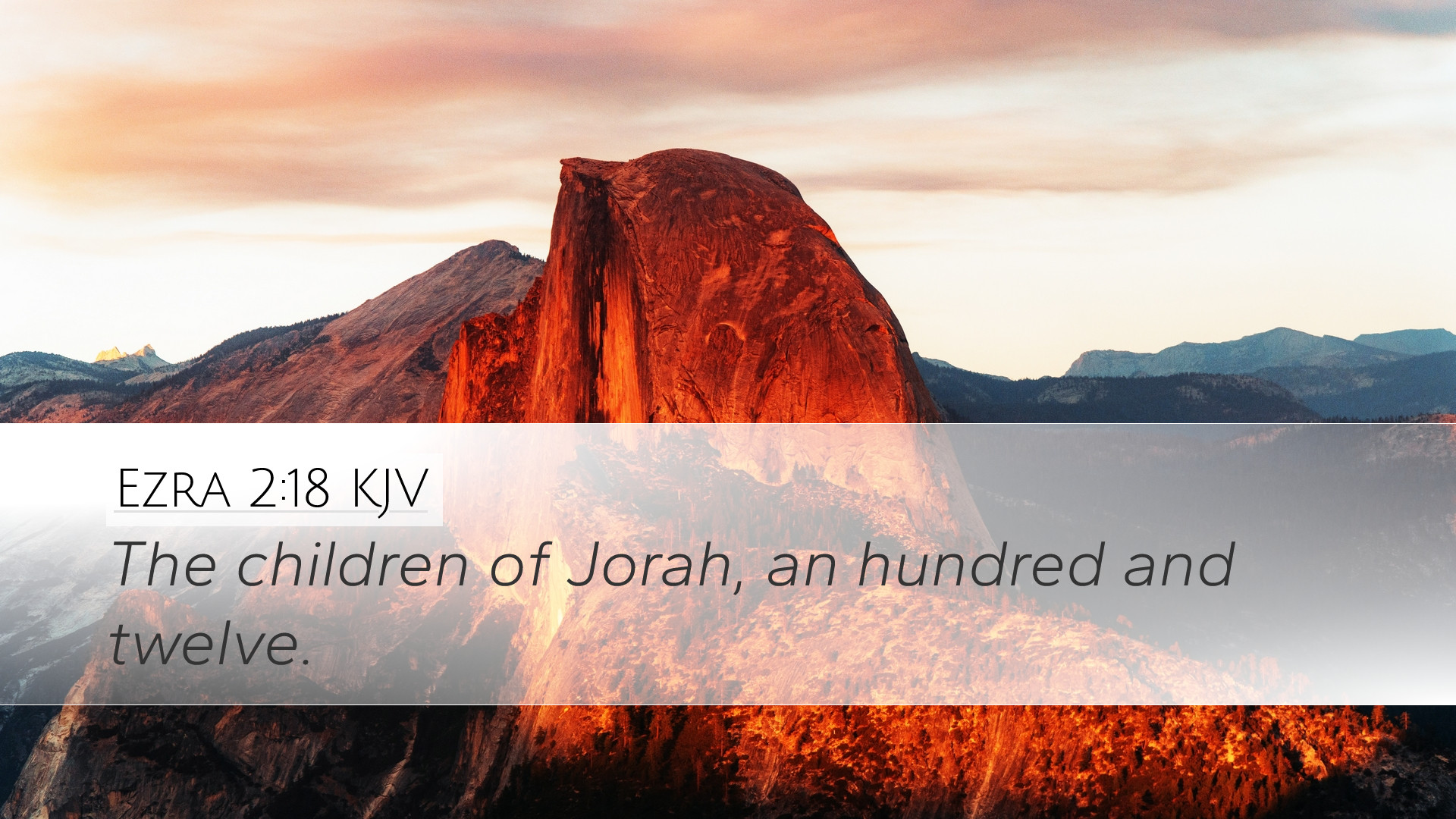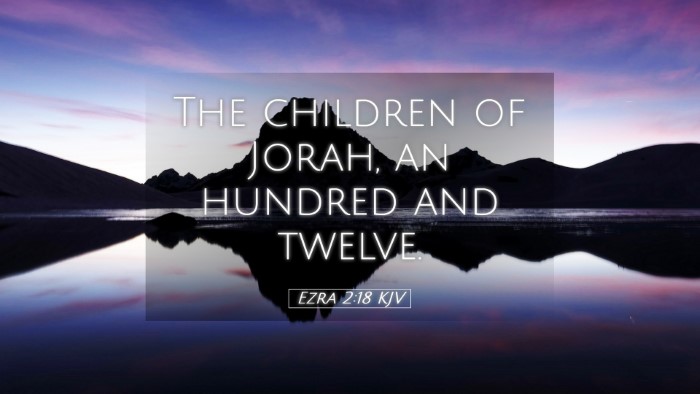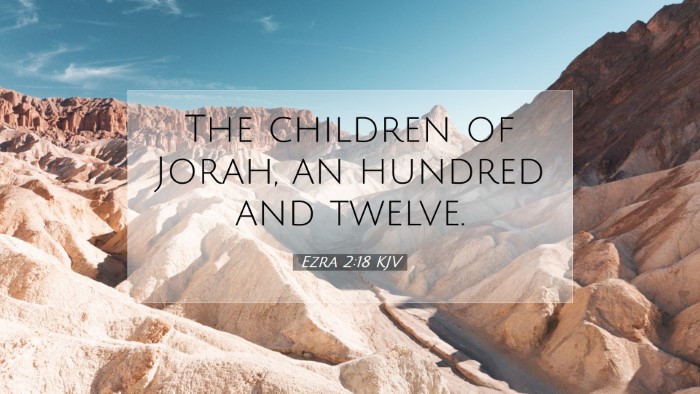Commentary on Ezra 2:18
Ezra 2:18 states: "The children of Phahathmoab, of the children of Jeshua and Joab, two thousand eight hundred and twelve."
Introduction
This verse is part of a significant list recounting the families and numbers of those who returned to Jerusalem from Babylonian exile. Each name and number recorded carries weight as they represent God's faithfulness in restoring His people to their homeland. The mention of Phahathmoab specifically indicates a lineage tied to David and significant roles within the community.
Contextual Background
The book of Ezra marks a critical juncture in Israel's history, post-exile. The return to Jerusalem signifies not just a geographical relocation but a theological reaffirmation of their identity as God's chosen people. Ezra, as a priest and scribe, plays a crucial role in leading the people in their religious and civic life. Commentators like Matthew Henry emphasize the importance of this list as an illustration of the providential workings of God in history and the restoration of the covenant community.
Commentary Insights
Significance of Phahathmoab
Albert Barnes notes that the name "Phahathmoab" likely refers to a significant family or chief within the tribe of Judah. The lineage of Jeshua and Joab suggests a rich heritage, possibly linked to the priestly functions that were central to the restoration. This highlights the idea that the returnees were not merely individuals but represented established families with responsibilities, energies, and contributions to the future of the nation.
The Numbers as Symbolism
The specific number of two thousand eight hundred and twelve points to the notion that every individual counts within God’s plan. As Adam Clarke remarks, these numbers express not only a statistic but a divine order. In God's economy, each descendant has a place and a purpose. This return can be seen as a microcosm of God's redemptive work across the ages—restoring and reorganizing His people towards His divine purposes.
Applications for Modern Readers
This verse serves as a reminder of the continuity of God's covenant promises. Pastors and theologians alike can draw on this text to address themes of belonging and identity within the Body of Christ. The church today is a continuation of that covenant community, wherein every member, like the returning exiles, has a critical role to play in the testimony of God’s faithfulness. Matthew Henry encourages us to reflect on how we might contribute to the community’s restoration and service.
Spiritual Reflection
The return from exile offers deep spiritual reflections on repentance and restoration. Just as those families returned to a physical homeland, believers are called to return to spiritual fidelity. This call invites personal and communal examination of how one lives out their faith amidst contemporary struggles. The numerical representation also encourages one to consider the importance of spiritual lineage and legacy. Albert Barnes reminds us that the church should recognize its roots in historical faith, reminding congregations to cherish their spiritual ancestry and live it out with vigor.
Conclusion
Ezra 2:18 is not merely a statistic; it is an account of God's faithfulness and restoration. For pastors, students, and theologians, this verse invites a deeper understanding of God's ongoing work within the church. Each individual's contribution, rooted in heritage and faith, is integral to the larger narrative of redemption. Whether through teaching, leading, or serving, we are all a part of the story God is telling, one that began long before us and will continue beyond our days.


